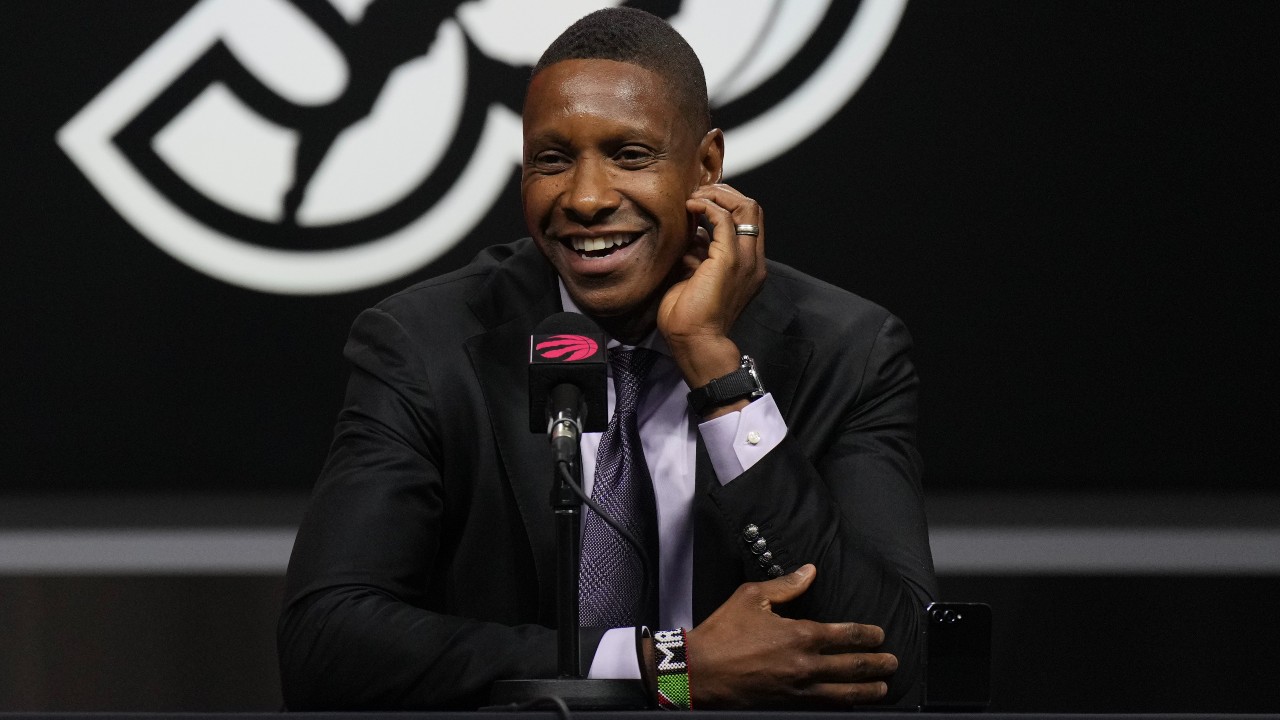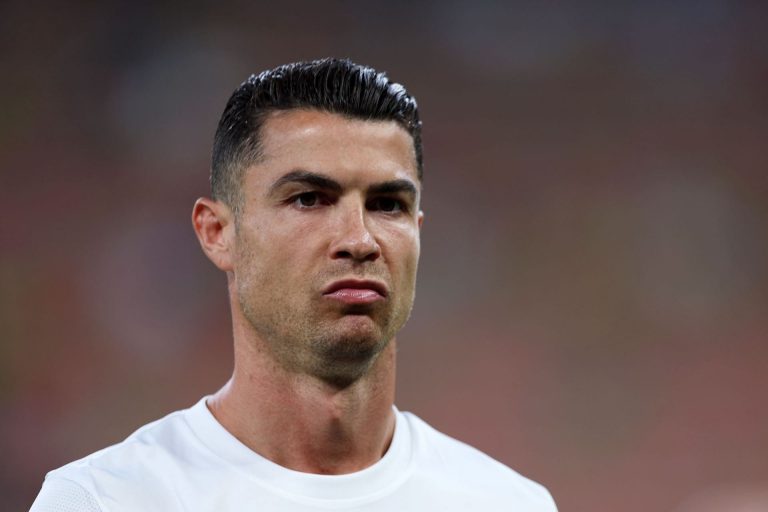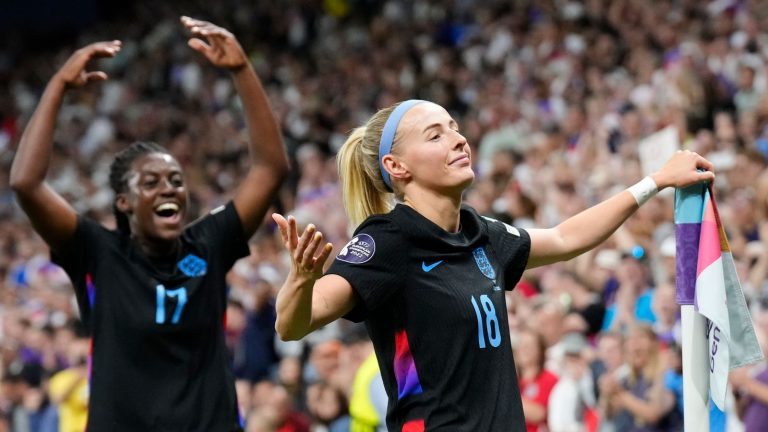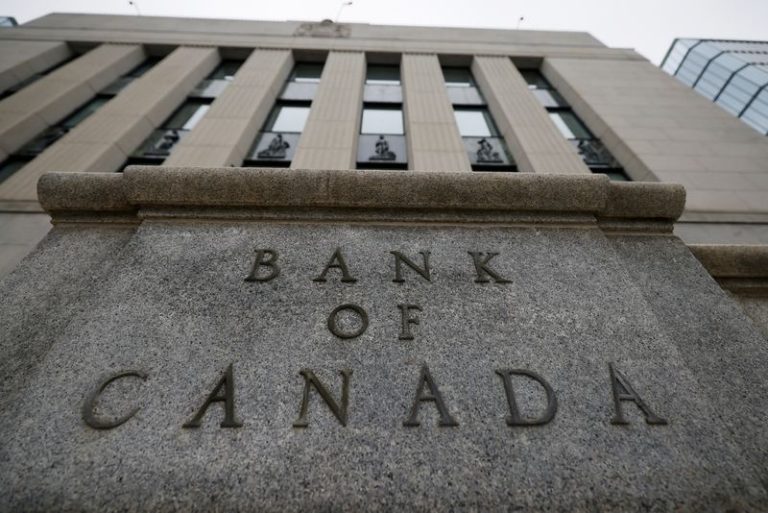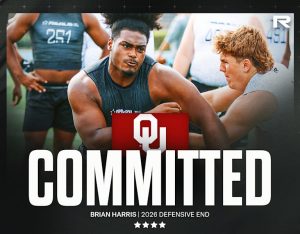TORONTO — When Keith Pelley arrived as the president and chief executive officer at Maple Leaf Sports and Entertainment just over a year ago, it was reasonable to expect change was coming.
That’s been the longtime sports executive’s brand for decades, whether running broadcast companies, golf tours or sports franchises.
But he’s been in ‘wait-and-see’ mode for most of his tenure, at least until Thursday when he met with the MLSE board and — having seen enough — recommended the company part ways with Toronto Maple Leafs president Brendan Shanahan after 11 seasons, the Toronto-born Hall-of-Famer’s goal of bringing a Stanley Cup to Toronto never being realized.
An entirely reasonable question now, with the axe having fallen on one team executive at the Canadian sports giant, is what are Pelley’s plans for the Toronto Raptors and their long-standing president Masai Ujiri?
He wasn’t particularly forthcoming on Friday at the media availability discussing his rationale for parting ways with Shanahan when asked about Ujiri’s future.
“I think under Masai, the Raptors have obviously not only won a championship, but started a rebuild, and I’m optimistic about the season ahead,” Pelley said.
When asked again if he anticipated any changes in Ujiri’s status, he added that he was only entertaining questions about the Leafs.
Still, the circumstances around Ujiri are tangibly different.
Whereas Shanahan was on the last year of his contract and would have needed a new deal to move forward, Ujiri has more than a year remaining on his — a five-year deal worth a reported $15 million annually, believed to be the one of themost lucrative executive pay packets in the NBA, if not across sports, at the time of signing.
It’s not an amount that any organization walks away from unless deemed absolutely necessary, and that’s not factoring any kind of severance package an executive of Ujiri’s stature might have been able to negotiate given the position of strength he enjoyed — a championship and the longest run of success the franchise has ever had — at the time.
None of which is relevant unless it’s determined that MLSE wants Ujiri to exit, or conversely, if Ujiri wants to move on to something else.
From my understanding, neither of those things are true at the moment.
“There is nothing imminent,” according to one source.
In other words, there are no plans to make a change with the Raptors front office now or in the immediate future. The MLSE board meeting held Thursday that sealed Shanahan’s fate didn’t even have Raptors business on the agenda, according to sources.
By far the most-likely scenario is the status quo continues with the Raptors and Ujiri is with the team at least until the end of his current deal.
The Atlanta Hawks have reached out through an executive recruiting company as they have interest in Ujiri for the president’s role there, but no formal permission to speak with Ujiri has been requested or granted, and all indications are that the Toronto executive wants to see things through here.
Working into the last year of his contract is certainly a set of circumstances Ujiri has been comfortable working under before — he let his last contract expire and was truly a free agent in the summer of 2021 before he signed his current deal in September of that year.
That said, there have been preliminary talks between Ujiri and members of the MLSE board to gauge where the two parties stand as the company prepares to transition to Rogers owning a 75 per cent stake in the business, which will — presumably — increase to 100 per cent when MLSE chairman Larry Tanenbaum exits his 25 per cent ownership position next July as required by the shareholder agreement.
There has been nothing that would qualify as negotiations, just a feeling out regarding whether Ujiri sees himself staying with the Raptors beyond his current deal, and conversely, what MLSE could look like as it enters a new phase which could include folding in the Rogers-owned Toronto Blue Jays and seeking external investors to take on a minority stake in a business Rogers valued at $15 billion at their annual general meeting last month.
The sense is that over and above any contract considerations, Ujiri wants to stay on long enough to return the Raptors to championship contention, something he emphasized during his end-of-season media availability and has reiterated privately. He wants to win again in part because — between the pending free agency of Kawhi Leonard and the incident he had with a police officer working security at Oracle Arena that man-handled him as he tried to join the on-court celebration, triggering an investigation and legal battle, both resolved in Ujiri’s favour — he didn’t get to properly experience his first title.
“I feel like maybe I did not enjoy [the championship] and I feel like we just have to win another one, and we will win another one here,” Ujiri said at the end of the regular season. “And that’s, that’s how I feel inside. Every day I wake up, I sleep, I drink, I eat, is to come and trying to win … Maybe it’s from not enjoying it, from what happened to me that day … and yeah, I guarantee you I’m going to enjoy it. And I guarantee you we are going to win here.”
How long Ujiri will have to pursue that goal will likely rest in Pelley’s hands, with sources suggesting that the purpose of hiring an active, hands-on executive like him at MLSE was to have someone other than the ownership group make that type of analysis and those types of decisions.
Pelley described his role in dealing with the executives under the MLSE umbrella this way:
“The people who are going to make the key hockey decisions, the people who are going to make the key basketball decisions, are hockey-oriented people or basketball-oriented people. My role is to try and create a culture and the chemistry within that organization that builds a culture of winning championships.”
Pelley said that while there are no plans to add a new president to replace Shanahan, that there is no hard-and-fast rule on that front. At the moment, the Raptors have Ujiri as president with Bobby Webster as general manager.
But there is no ignoring that the dynamics have shifted as compared to the last time Ujiri was headed into the last year of his contract. At that point in 2020-21, the Raptors were a year removed from a championship and coming off posting the league’s second-best regular season record before losing in seven games in the second round to Boston in the NBA bubble in Orlando.
From a competitive standpoint, Ujiri’s case isn’t as rock solid as it might have been previously. The Raptors have been in the playoffs once in the past five years and are coming off 30-win and 25-win seasons. There are extenuating circumstances to be sure, but from a distance, that former Raptors OG Anunoby and Pascal Siakam are foundational pieces for the New York Knicks and Indiana Pacers, respectively, in the Eastern Conference Finals is a development someone in Pelley’s position would want an explanation for.
Similarly, the Raptors setting out to tank this past season but ending up with the No. 9 pick is a tougher sell than had the lottery balls tumbled differently, and the Raptors ended up with projected No.1 pick Cooper Flagg, for example.
As well, the Raptors have had their largest year-over-year season ticket holder decline this past year, even though prices were raised only to match inflation, per sources.
It’s reasonable that the tremors affecting every sector of the Canadian — if not global — economy in the past six months have more to do with that than say, whether the Raptors were resting RJ Barrett and Jakob Poeltl on a Wednesday in March in favour of AJ Lawson and Orlando Robinson, but again, it raises questions.
The answers for Ujiri are very simple: put a team on the floor that can take advantage of what projects to be a wide-open Eastern Conference, and either find a potential long-term starter with the No. 9 pick or use the pick and a mixture of other assets to bolster a rotation where the five projected starters will earn $156.5 million next season at an average age of 27.
Ujiri still describes himself as a scout at heart, and he and his staff were on the road looking for talent relentlessly this season. He is determined to pick a winner if they keep the No. 9 pick.
The Raptors certainly showed signs that there was plenty more under the hood than their overall record showed as they were angling for draft position last season, forfeiting wins wherever they could.
A smart transaction or two, some good health, a reasonable improvement from Barnes in Year 5, progress from the other younger rotation members, and — and this would be big — a 70-game season from Brandon Ingram and it’s not hard to envision the Raptors pushing for a playoff spot or even homecourt in the East. If that all comes together, Ujiri will be back where he’s always been in his contract year: negotiating from a position of strength, but unlike other times in Ujiri’s tenure, ‘if’ is doing some lifting.
